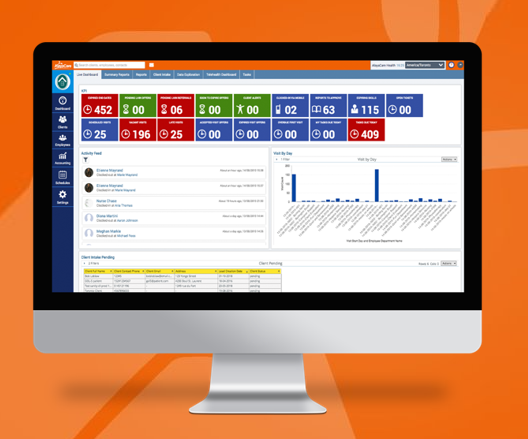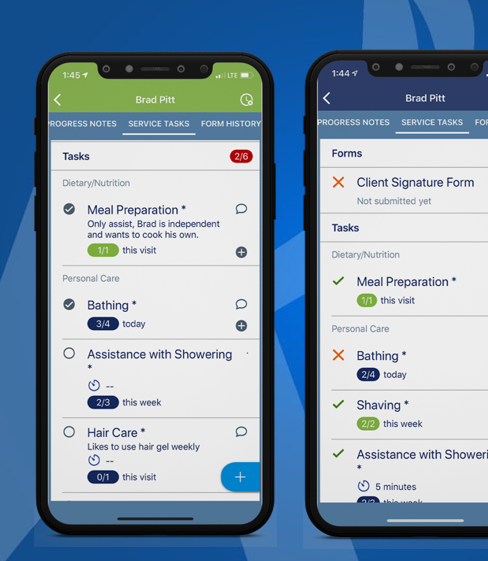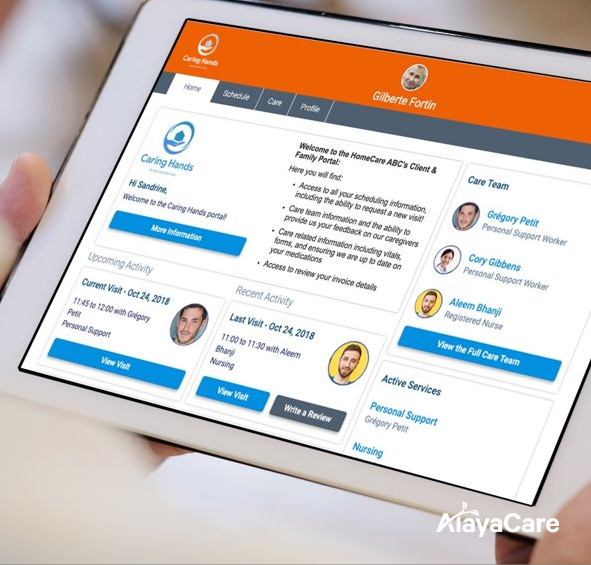Account Login
Don't have an account? Create One

A digital platform to be introduced for Newfoundland and Labrador’s Home Support Program promises new tools for managers, care providers and clients. There is also potential for new, detailed insights into care approaches and management, according to the creators.
The Newfoundland and Labrador Centre for Health Information (NLCHI), on behalf of the provincial Department of Health and Community Services, has contracted Quebec-based AlayaCare for “a provincial software solution for the home support program.” The NLCHI covers shared IT technologies in healthcare for the province.
The leadership team at AlayaCare says landing the contract through a tender process involved, among other things, reviewing security details. It’s not unexpected in the industry but particularly in a province where a cyberattack on health authority systems just over a year ago included capture of over 200,000 personal healthcare files. A portion of those files contained personal information such as medical history, diagnoses and identification details (names, MCP numbers, dates of birth and home addresses). The incident makes Newfoundland and Labrador an interesting jurisdiction for any company offering a digital service to step into, with potentially more intense scrutiny.
AlayaCare CEO and co-founder Adrian Schauer said it was clear during the review process for his company that security is important to NLCHI. At the same time, he added, it’s also fundamental, regardless of the client jurisdiction, to the company and its over 600 employees. Security was not just a consideration on initial development of company software, he said. AlayaCare has an active privacy and security committee, ordering up third-party “penetration tests,” overseeing individualized privacy assessments and digital risk assessments.
“In terms of anything in healthcare, data, privacy and security is not a nice to have, it’s a must have. AlayaCare was developed security-first,” Schauer told Atlantic Business Magazine.
Meanwhile, with the coming platform for the Home Support Program, he said, there is potential for real reward on the other side for the care system with its use. For one, the platform brings disparate records together and it moves paper and phone-based operations sometimes still used into an efficient, digital data format. The functions have been seen in some other provinces where AlayaCare has experience, including Prince Edward Island, as an Atlantic Canadian example (Schauer said the company is interested and exploring potential with other provinces in the region).

AlayaCare’s platform is designed to monitor a client from their referral and intake to assessment details, care plans, record of home visits and care over time. It covers beyond care provisions as well, including payroll and billing records.
Functionally, there are three main user groups. The first is the client, the client receiving home care and their family members, or their dedicated representative. The client-side view when going online and entering the platform will show records of bills paid, faces of the care workers who regularly attend the home, even who they can expect to arrive at the door on an upcoming visit. It offers a place for adjusting schedules and for service feedback, in ratings and comments.
For frontline workers providing care, the dashboard they can access is specific to their needs, allowing contact with managers around their overall scheduling and the review of client files. They will be able to see details of the care plan and records of past visits. With a mobile app, the platform is designed so workers can review client information before arriving at the door, from personal preferences down to notes on any risks in the home, like an aggressive pet that might have to be isolated before entry. Since records are digitized, in the event of one worker stepping in for another who may be off sick, for instance, it allows them a full view and understanding, without needing to consult last minute with someone at a central office to dig out details.
For managers, there is benefit in reducing back and forth on client information and environmental notes, but the platform also allows for scheduling (avoiding back and forth over available shifts) and dispatching workers, with GPS views of a coverage area. Review of data gathered by the system allows managers to see travel time between home sites and potentially find efficiencies in adjustments to routes or schedules over time. Artificial intelligence components can, according to the company, predict needs for additional client visits for example or calculate best travel routes.
“You know, nobody goes into being a caregiver so they can sit behind their wheel all day,” Schauer said.

The platform also offers virtual care, telehealth, options as needed, with phone and video conferencing compliant with the standards of the U.S. Health Insurance Portability and Accountability Act (with end-to-end encryption, secure connection verification for example).
From purely a care perspective, it is capable of generating some hard numbers as part of the evidence on what works and doesn’t for care providers and clients.
Home care systems are obviously different province-to-province. In Newfoundland and Labrador, the platform theoretically allows for greater clarity of information shared between private care providers on the system. It can offer provincial Health new views into efficacy of different particulars in home care.
It all comes with the expectation of an improved system over time — one more appealing to clients feeling unheard or poorly treated; a category of workers in demand across the country and sure to be in greater demand in the years ahead; employers who can benefit from new communication and information at their fingertips.
Schauer suggested there can sometimes be a disconnect in jurisdictions between care planning and care delivery. “Newfoundland is now building up quite a unique data set, where you can really track all the way from assessment through to care delivery,” he said, adding others are watching and following to see the results in the province’s system.
On the data side, Schauer said there is a lot that might be gleaned from reviewing care at home and results of care approaches. It includes a better sense of home care in relation to chronic illness ties into the acute care needs. There is interest in better health outcomes. And from a cost perspective, an emergency room visit followed by hospital admission costs much more than effective home-based health management. Essentially, is there potentially to incrementally reduce the number of hospital stays by simple adjustments and specific forms of preventative care? It’s expected to be seen in the data.
The platform for Newfoundland and Labrador is being tailored. Schauer said he roughly expects it to take about a year to roll out with a green light.
As for the deeper insights? The company can’t just take numbers from the system and run. Schauer said the data belongs to the NLCHI. At the same time, he’s interested to see where the province goes with the tools its being offered. Regardless of how far its taken, a positive review of the system itself has the potential to net AlayaCare even more business with Atlantic Canadian providers.
Comment policy
Comments are moderated to ensure thoughtful and respectful conversations. First and last names will appear with each submission; anonymous comments and pseudonyms will not be permitted.
By submitting a comment, you accept that Atlantic Business Magazine has the right to reproduce and publish that comment in whole or in part, in any manner it chooses. Publication of a comment does not constitute endorsement of that comment. We reserve the right to close comments at any time.
Cancel